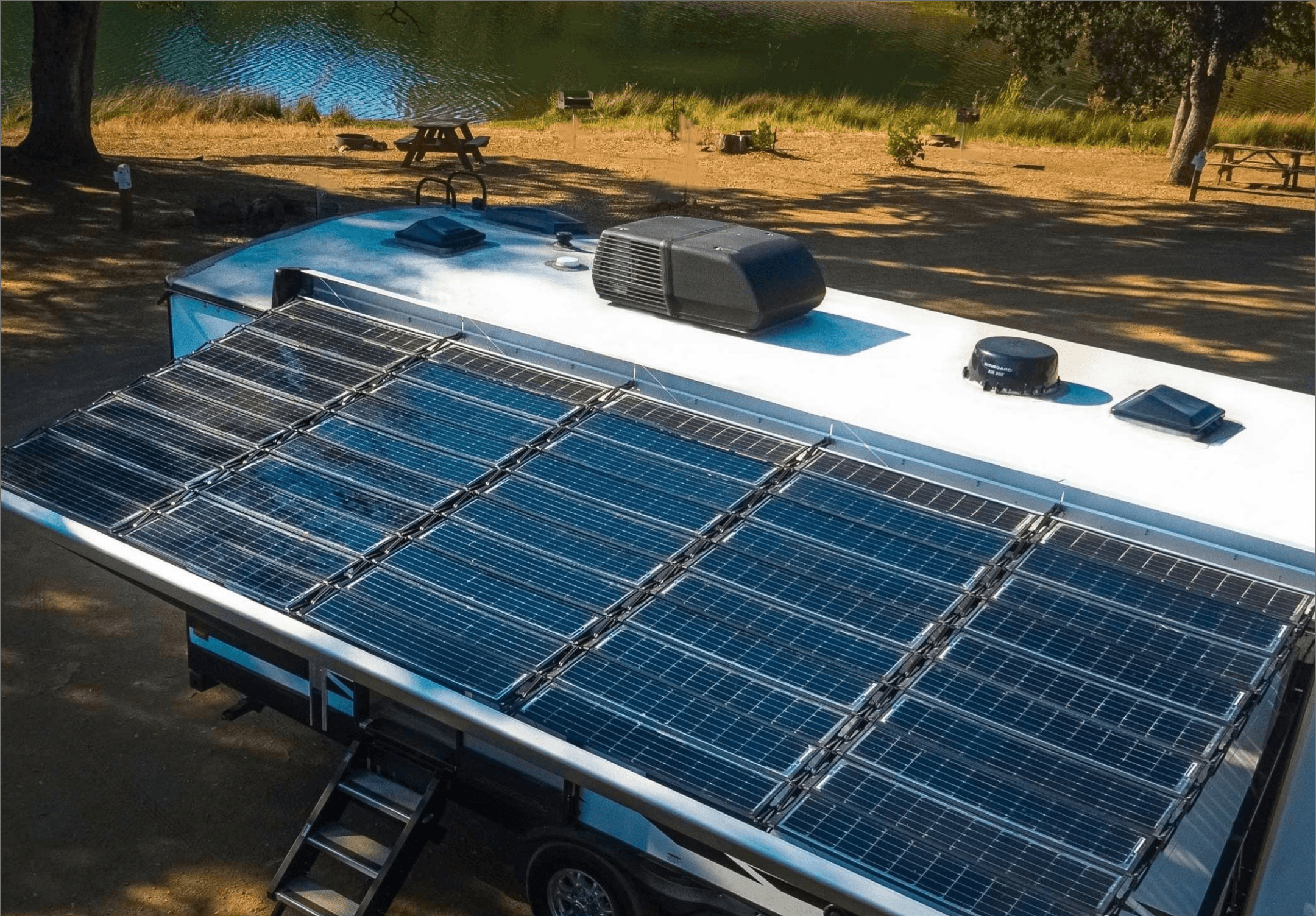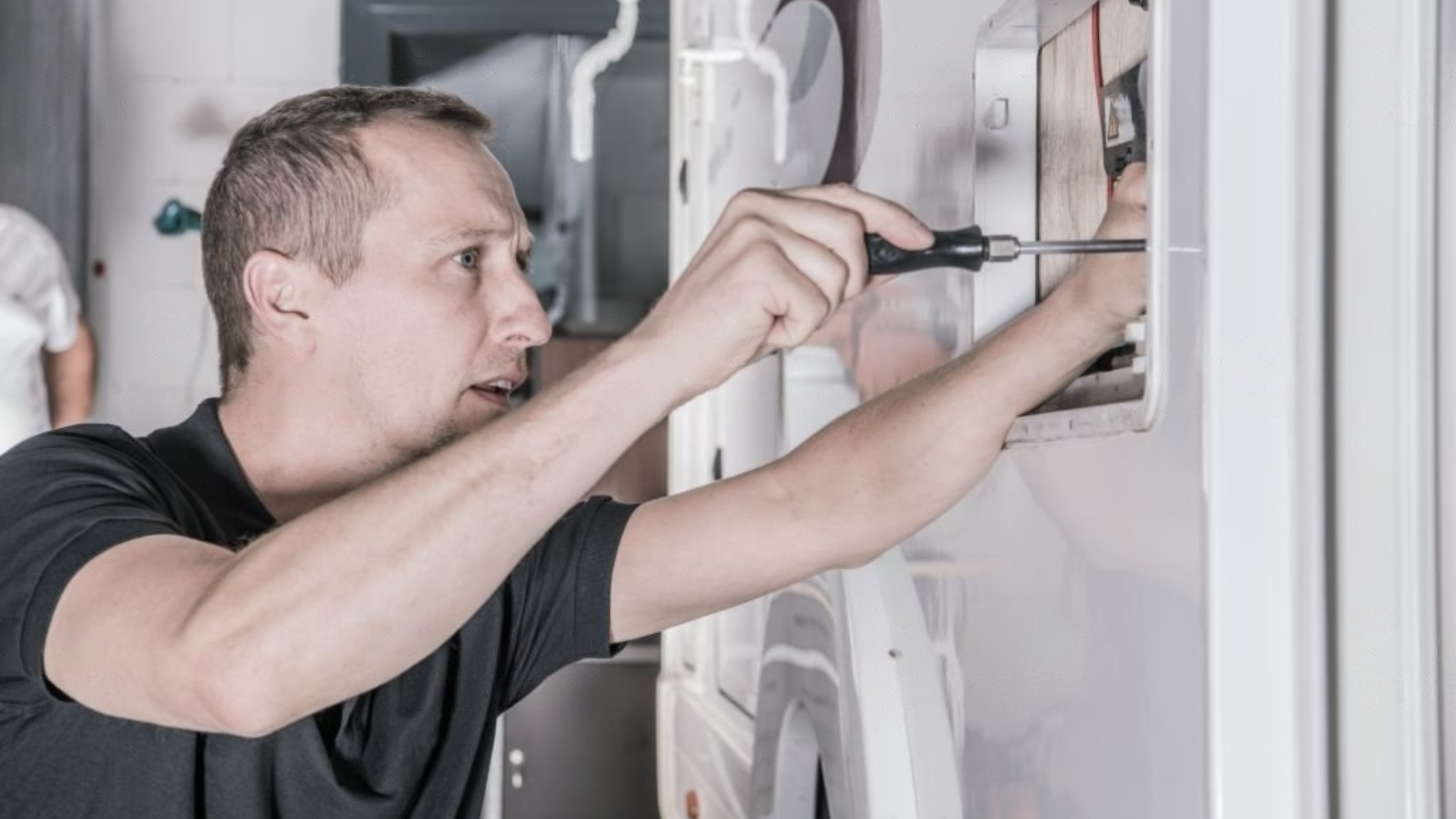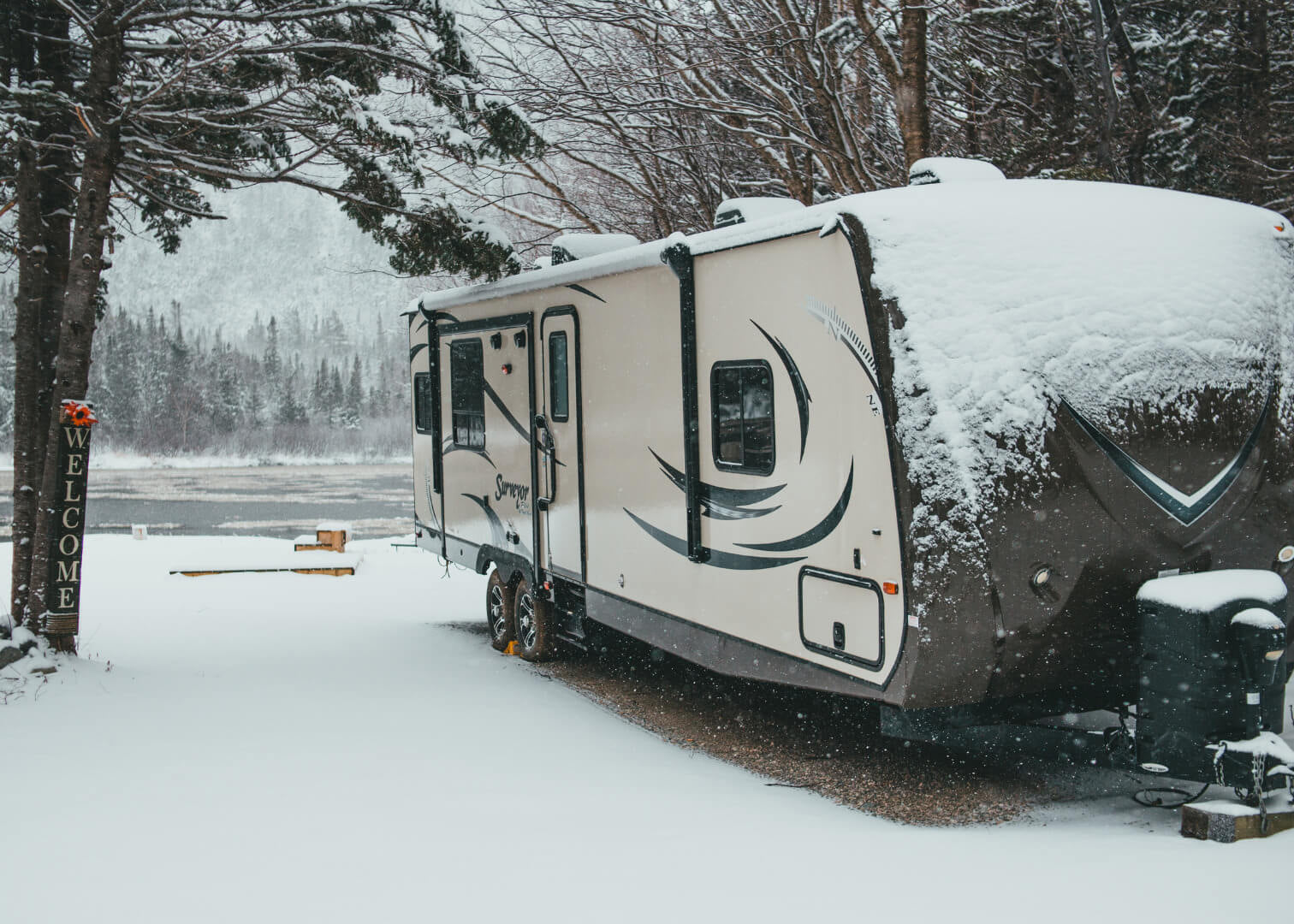As an avid RV enthusiast, I have always been fascinated by the idea of being electrical energy independent while on the road. And one of the biggest challenges in achieving that goal is running the RV air conditioning on batteries and solar.
For years, RVers have relied on generator power or plugging into shore power to keep their air conditioning units running. But with advancements in battery and solar technology, it is now possible to run an RV air conditioner solely on batteries and solar power.
In this article, I will share my experience of achieving this goal and provide valuable insights for those looking to follow in my footsteps.
Before I dive into the details, it's important to understand the challenges of running an RV air conditioner on batteries and solar. Air conditioning units require a lot of power, and typical RV batteries can't provide enough energy to run them for more than a few hours. Additionally, solar panels need to generate enough electricity to power the air conditioner while also charging the batteries for use at night. Therefore, a properly designed battery and solar system are crucial for successful operation.
I started my journey towards RV electrical independence in 2015, and at that time, I didn't have a solar panel or lithium battery system. It was a challenging time, and I had to rely on running the RV air conditioner on batteries alone. I installed four 6-volt golf cart batteries in series to create a 12-volt battery bank. This setup allowed me to run the air conditioner for approximately 2-3 hours, depending on the outside temperature.
To extend my battery life, I made several modifications to my RV to reduce the amount of power I consumed. I replaced all my lights with LED bulbs, installed a programmable thermostat, and upgraded my refrigerator to an efficient compressor model. I also used fans to circulate air, which helped to reduce the load on the air conditioner.
One of the biggest challenges during this period was keeping the batteries charged. I had to rely on a generator or find a campsite with electrical hookups to recharge my batteries. The limited battery capacity also meant that I had to be cautious about my power usage, especially when using other appliances such as the microwave or hair dryer.
Despite the challenges, running my RV air conditioner on batteries was an excellent learning experience. It taught me how to be more conscious of my energy usage and how to maximize my battery life. But I knew that I wanted to do better, and I started researching lithium batteries and solar panels.
In 2018, I finally took the plunge and installed a 600-amp hour lithium battery system and a 1600-watt solar array on my RV. This upgrade was a game-changer for my RV electrical system, and it allowed me to run my air conditioner on batteries and solar with ease.
The lithium batteries provided me with more than enough power to run my air conditioner throughout the night, and the solar panels recharged the batteries during the day.
The key to making this system work is proper sizing and installation. The size of the battery bank and the number of solar panels required depend on the size of the RV and the power consumption of the air conditioner. In my case, I consulted with an electrical engineer to determine the right size of the system for my RV. The installation was also critical, and I hired a professional to ensure that everything was installed correctly.
One of the benefits of running my RV air conditioner on batteries and solar is that it's much quieter than using a generator. I can run the air conditioner all night without disturbing other campers, and I don't have to worry about the noise or fuel consumption of a generator.
Additionally, the solar panels provide me with peace of mind knowing that I am not reliant on electrical hookups or running out of gas for my generator.
Over the past five years,I have had the opportunity to gather a lot of data and insights about running an RV air conditioner on batteries and solar.
Here are some of the things I have learned:
- Battery capacity is crucial - If you want to run your RV air conditioner on batteries and solar, you need to have a large enough battery bank to provide sufficient energy. Lithium batteries are ideal for this purpose as they are lightweight, have a higher energy density, and can discharge deeper than lead-acid batteries.
- Solar panel size matters - The size of the solar array you need will depend on your RV's power consumption and the amount of sunlight available. A general rule of thumb is to have enough solar panels to generate at least 50% more energy than you consume on an average day. It's also essential to angle the panels correctly and keep them free of dirt and debris to maximize their efficiency.
- Energy conservation is still important - Even with a large battery bank and solar panels, it's still essential to conserve energy. You can do this by using energy-efficient appliances, turning off lights and electronics when not in use, and using natural ventilation instead of the air conditioner when possible.
- Weather affects performance - The amount of sunlight available and the temperature outside can affect the performance of your solar panels and batteries. It's essential to monitor your energy consumption and production during different weather conditions to ensure you have enough power for your needs.
- Professional installation is critical - A properly installed battery and solar system is crucial for safe and efficient operation. It's best to hire a professional who has experience with RV electrical systems to ensure that everything is installed correctly and safely.
Here are some Frequently Asked Questions
Can you run your RV air conditioner only with batteries and solar panels?
The answer is yes you can — if you have a big battery bank and a large inverter. Then you have to install a big enough solar array to replace the energy that the air conditioner consumes. I also had to rewire my electrical panel so that my inverter would supply the electricity from the batteries to the air conditioners.
Too many solar panels! The picture is still one panel short of the full array.
My system requires a large inverter. I have friends that have direct-current (DC) air conditioners (almost experimental models) that don’t require an inverter. They can run their air conditioners longer than I can from the same battery power because this design is more efficient. My big inverter wastes about 10% of my available power and converts the wasted electricity into heat.
Can you run an RV air conditioner only on solar panels? (without a big battery bank)
Not in my system, my solar is wired to recharge my batteries it is not wired directly to the inverter so I can’t run my air conditioners directly from solar. This wasn’t my design goal because I want to run my air conditioner when I want air conditioning including after sunset. This won’t work without a big battery bank.
Is it practical to install an RV battery bank big enough so that you can run an air conditioner?
For me, the answer is yes. For you, the answer depends on your priorities. For me, it is practical to install a battery system big enough to run my air conditioner. I wanted to run my air conditioner at night when I was sleeping. So it was critical that I have a big enough battery bank to accomplish this goal. Additionally, the battery bank also allows me to run my RV for two and a half days without any additional electrical energy when I don’t need my air conditioner.
Picture of the front array on the driver’s side. The front of the RV is to the left of the photo.
How many batteries does it take to run an air conditioner?
I can run one of my air conditioners for about one hour on each one-hundred amp-hour lithium battery. I have nine one-hundred amp-hour lithium batteries. So if I did this, after nine hours, my batteries would be empty. There are several ways I could make this better and have friends that have more efficient (smaller RVs) and more efficient electrical systems that can run their air conditioners longer from each battery.
Can you run your air conditioner on your solar without depleting your battery charge?
Not for my system. I will explain this next. Being able to run the air conditioner, say in the afternoon without depleting the battery charge was a hopeful goal but I have to say that I really didn’t completely accomplish this goal. If I were to increase my solar array size by perhaps 30% then I am pretty sure I could do this. Part of installing more solar panels would provide additional shade on my RV roof.
John installed these panels on his trailer and also more on his RV roof. Yes, he can air condition from his battery bank.
How many solar panels does it take to run an air conditioner?
The answer for my air conditioner is more than 2000 delivered watts per hour. I have 1800 watts of solar but can only deliver 1400 watts. Solar panels are only 100 efficient in a laboratory. On an RV roof, they are never going to deliver their full rating. For many RVers, the limit is roof space. For others, the limit is money. For me, the answer was no. The reason it is no is because of diminishing returns.
Additionally, I still have my RV generator, so, I have options.
My first 900 watts of solar panels provide most of the energy I need on a typical day. This includes running my refrigerator all day long. My second 900 watts of solar panels means that I usually can achieve a full recharge before noon after a typical night’s energy use. Then in the afternoon, I can use the extra energy and live without any concerns that I will run out of electricity. When the sun goes down I almost always have a 100% charge on my battery bank. Assuming that I didn’t need air conditioning at night, then I will deplete about twenty five to forty percent of my battery charge before the solar array starts charging the next day.
Picture of the rear of the RV and the solar panels in the lower (normal) position.
I had an advantage from the beginning.
My RV had an initially lower cost to install a huge battery bank and solar than many similar RVs. I already had a very capable Magnum Inverter/ Charger when I installed a massive battery bank. I have plenty of battery power and I can run one of my air conditioning on batteries, starting with a full charge, for about eight hours. I also have a large-capacity generator that can run both of my air conditioners and recharge my batteries at the same time.
Is it hard to run your air conditioner from your solar?
The simple answer is that to get solar to work, you have to park the RV in the sun. When you park your RV in the sun, then your air conditioner has to work much harder than if you park in the shade. If you park in the shade then the solar won’t work.
It is better to park in the shade and run your air conditioner from a generator and at the same time, charge your batteries so that you can run your air conditioner from your battery bank at night when you are sleeping.
Victron 100/50 Solar Charge Controller and Battery Monitor Screen. Notice the DC shutoff switches and fuses under the solar controllers. Circuit breakers are located on the ceiling above the controllers. You can see the corner of the battery bank under the controllers.
Having a large battery bank and a large solar array isn’t just to run the air conditioner, but rather to supply all my electrical energy needs when I don’t need the air conditioner.
Could I build an RV that could operate completely on solar?
Not if you include driving the RV on solar only.
I am convinced that I could achieve everything other than driving, in a carefully designed RV. The design would have to have this as a goal from the beginning. One of the design criteria would be to have a completely clear roof. RV roofs typically have lots of obstructions on them and that makes covering the roof with solar panels very difficult. I have an RV that balances travel with energy independence and makes travel easy. My RV also places a premium on space and comfort.
How long can I run my air conditioner from my battery?
I have a big battery bank and a big enough inverter. I can run my air conditioner at night when I am sleeping, (more than 8 hours per night) all night long. That makes me so happy and so much more capable than almost every other RV. The solar array is great, but not good enough to run my air conditioner continually while it is sitting in the sun.
How does my battery and solar work to run my RV?
The battery powers the inverter and then the inverter runs the electrical needs. The solar recharges the battery. The key is to have a big enough battery bank. Here is a link to a description. Why do we have a Hybrid Mongrel Battery in our RV? This past fall we replaced our lead acid batteries and made an additional electrical remodel. Here is a link to our new configuration. Can one lithium battery replace four lead-acid batteries?
Can One Lithium Battery Replace Four Lead-Acid Batteries? The answer to this question is yes if you do it correctly.
Here is a link to the description of my battery bank. Make sure that you understand my meaning of an electric bucket. It is a very important part of this issue. Massive Electric Bucket
The next step is to install a large solar panel array. I wanted it to be capable of creating enough electricity to “run” the air conditioner with enough extra electrical energy to recharge the batteries at the same time. When I am not running the air conditioning my goal is to dump about 100 amp-hours of electricity into my battery as fast as possible. Installing our Zamp Obsidian Solar Array
Zamp Obsidian Solar panel. I have eighteen of these in my solar array.
I can easily hit 500 amp-hours per sunny day of charging. Sometimes, on a long summer day, I have created more than 1100 amp-hours in a single day. The problem is that the air conditioner can easily use everything the solar array can put out. Some people have suggested that we have too many solar panels or that they were wired incorrectly. Here is a link associated with that question. You have too many solar panels on your RV!
It is not my design goal to run my air conditioning on batteries and solar indefinitely, especially in the south, in the summer with solar power alone. Simply stated, I don’t have enough roof space to accomplish such a feat. But rather, I can easily achieve my goal of occasional use. My occasional use means all night long when necessary.
These solar panels were installed in 2008. They still worked in 2020 when I gave them away.
The details of RV Air Conditioning from Solar
Air conditioning on solar is a holy grail for RVs. The statement “from solar” is incomplete. You don’t run air conditioning on batteries and solar; instead, the solar charges the batteries. The batteries deliver the energy to the inverter, which in turn runs the air conditioner.
Running the air conditioner directly from the solar is a non-starter because you don’t only want to run the air conditioners just when the sun is shining. Rather you want to run the air conditioners when it is most important for you to have a more comfortable RV. For me, this means being able to run my air conditioner at night without the benefit of sunshine.
Conclusion
In conclusion, running an RV air conditioner on batteries and solar is entirely possible with the right equipment and proper installation. It's an excellent way to be energy independent while on the road and reduces your reliance on generators and electrical hookups.
With advancements in battery and solar technology, it's becoming easier and more affordable to achieve this goal. So if you're looking to become more self-sufficient while RVing, consider upgrading to a lithium battery and solar system to power your air conditioner and other appliances.


